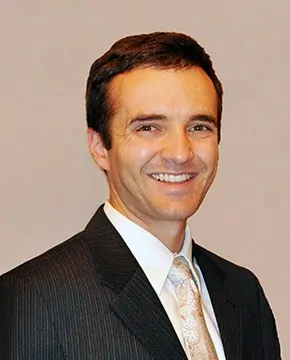

Increased separation and segregation correlate to additional space needs in transfer stations. Given the move to automation in solid waste collections, it is reasonable to assume that the processing of MSW is going to move toward automation as well.
In his most recent article, Mike Kalish discusses some of the key considerations for the development, or redevelopment of transfer stations today.
Mike Kalish, P.E., LEED AP, is a Vice President of SCS Engineers and SCS’s National Expert on Transfer Stations. He has been the Project Manager for major transfer station renovations and expansions in several states.
Imagine that one of your employees comes and tells you that a 100-gallon spill just took place at your facility and it is flowing swiftly toward a storm sewer on your property.
Suddenly all eyes are on you. What you do next will show your leadership and skill at addressing the issue and limiting the company’s liability. Are you ready to be the hero, or is spill preparedness the one item that just keeps slipping down your to-do list?
Use the techniques recommended in Chris Jimieson’s latest article to make your spill response training engaging and interactive for staff handling oil. Spill preparedness becomes part of your routine and you’re ready to be the hero if a spill occurs.
Improve Your Spill Preparedness
SCS Management Services™ helps many of our clients’ incorporate economic planning, financial analysis, and feasibility studies into their master planning and have requested copies of our articles. All can be found and filtered by topic area, and we are always ready to help you find the information you need.
Our articles may be printed or shared using the icons on the left navigation bar. Or, you may share or email this page to keep it handy. SCS respects your privacy; we do not monitor or collect your email address or information.
Contact Vita Quinn for more information. Ms. Quinn is SCS Engineers’ National Expert on Solid Waste Finance and Rate Studies. She has 12 years of experience as a financial analyst and management consultant. She has extensive experience working for local government and has developed financial sustainability solutions for various general governments, special revenue funds, and utility enterprise funds. Ms. Quinn has an MBA in Finance and a Bachelor’s Degree in International Economics.

Residential Automated Collection Makes Sense for Idaho Falls
The Nuts and Bolts of Implementing a Residential Automated Collection Program
Conducting a Rate Analysis as Part of a Master Plan Study in Killeen, Texas
https://www.scsengineers.com/scs-articles/conducting-a-rate-analysis-as-part-of-a-master-plan-study/

Conducting Solid Waste Rate Studies and Business Plans
https://www.scsengineers.com/conducting-solid-waste-rate-studies-and-business-plans/
Get a Firm Handle on Solid Waste Costs to Optimize Performance
https://www.scsengineers.com/get-a-firm-handle-on-solid-waste-costs-to-optimize-performance/
Cash Flow Analysis Forestalls Long-Term Debt
Is Privatization the Answer? You Need to Consider Several Factors Before Making the Decision for Solid Waste Services
https://www.scsengineers.com/publications/articles/page/11/
Developing a Strategic Business Plan for Your Agency
Economic Feasibility 101 – Understanding the Tools of the Trade
Assessing a Solid Waste Agency’s Financial Health
Are Your Rates Correct? Collection and Disposal Rate Studies are a Valuable Tool
Integrating Financial Analysis into Solid Waste Operations Planning

Recycling Trends in the United States
https://www.scsengineers.com/scs-articles/6555/

Anaerobic Digester Economics
Give SCS a call or send an email to if you have questions. Find your local office here: https://www.scsengineers.com/locations/. Visit our Solid Waste Planning Services page for additional information, articles, whitepapers, and case studies.
Increasingly, solid waste and recycling agencies are being asked by their political decision makers to improve efficiency, focus on customers, and reduce increased costs. Many agencies are managed with a combination of manual processes, desktop computer tools, limited vehicle and cart tracking and management tools, and custom databases. While effective, these methodologies often entail more effort, labor, and costs.
Smart technologies are expected to grow substantially over the next decade as agencies attempt to minimize their overall costs in solid waste collection and recycling and increase overall efficiency. As discussed briefly in this article, smart technologies have advantages and disadvantages. As agencies investigate technology to help support their service, ensure continued quality service delivery and meet demanding business requirements, it is important to conduct feasibility assessments to evaluate the economic costs to implement and update the use of new technologies in a sustainable manner.
Marc J. Rogoff and Laurel Urena of SCS Engineers.
What makes Sol shine so brightly?
For Solavann Sim it’s his positive qualities as an individual and his ability to work effectively using a multidisciplinary approach with his clients. Our industry’s strongest and most respected leaders are those who are considered collaborative, not fixated on making all decisions themselves or working in a silo. On the contrary, innovation happens at the crossroads of different disciplines and that is where Sol shines brightest.
Sol’s landfill gas design-build and operations experience, along with his knowledge of hydrogen sulfide treatment programs, help prevent and mitigate potential problems quickly. His comprehensive technical and field competence, along with his clients, and his team comprised of staff in several disciplines approach solutions in various ways; each having unique perspectives but a common goal. Working collaboratively with clients the team solves complex challenges facing landfill owners and operators. Innovative solutions are often found where perspectives, ideas, and fields of expertise meet.
Read more about Solavann Sim and SCS Engineers LFG programs here.
See SCS’s 40+ years of innovative thinking at SCS Firsts an interactive list of client solutions, underneath News, Events, and Blogs.
Read and share the full article by David Greene, PE, here.
EPA recently established expansive new air rules affecting MSW Landfills. Implementation of the new rules places new responsibilities on both the regulated community and regulators alike. However, some of these responsibilities are unclear and have created unresolved issues that should be addressed in close consultation now with your state/local regulatory authority.
For example, if a landfill is “new,” the facility is now subject to NSPS Subpart XXX, which is fully effective. A design capacity and NMOC emissions rate report should already have been submitted.
If NMOC emissions from a facility exceed 34 Mg/yr, then the landfill will need to submit a GCCS design plan within 12 months of the date of exceedance and install and operate within 30 months (no later than May 2019 for those triggering with the promulgation of the rule). If a landfill is an “existing emissions source,” it will be subject to the new EG rule (Subpart Cf).
Landfill owners should maintain close contact with their state/local regulatory authority regarding the status of the regulator’s state implementation plan, due by November 2017. That state implementation plan will prescribe the required compliance dates for an existing landfill, likely to be no later than the 2018/2020 time period. In either case, owners should become familiar with the rule and stayed tuned as compliance guidance evolves to address the unresolved issues.
Contact SCS Engineers to discuss the regulatory status in your state at , or call your local representative.
Are you approaching the required five-year review/plan re-certification for your facility’s Spill Prevention, Control, and Countermeasure (SPCC) Plan? Even if you’ve been through several cycles of performing five-year tune-ups on your SPCC Plan, you can make your next review easier and prepare yourself for future SPCC Plan re-certifications if you follow these five tips.
Start Early
Late renewals are a consistent pain point for many companies. To avoid being late with your next re-certification, start your review six months before your SPCC Plan is due for its 5-year review. If you are conducting the review internally, start by identifying the person who will be doing the review. If you are using a third party, this approach will help you go through the proposal/contracting process, so you are ready to conduct the actual review and complete the re-certification before the Plan expires.
Simplify Data Collection
One of the keys to a compliant SPCC Plan is to collect accurate data in the field about your facility’s oil sources. Streamlined data collection is of particular importance if you have a large facility or your oil storage changes regularly. The key to simplifying data collection is to make sure your reviewer has organized information to evaluate the compliance aspects of each source. Accurate data collection can limit the follow-up required from plan preparers to verify information, as well as minimize the potential for discrepancies. Moreover, particularly useful if a third party is auditing your Plan or if it is in review during an EPA inspection.
Reduce Redundancy with a Summary Table
One way to simplify your Plan is to use an oil source summary table to cover as much information as possible. A table can include each oil source and the aspects of how the oil source is compliant with the SPCC Rule. There may be areas in the Plan where you need to provide additional text discussion regarding oil sources to explain a compliance matter. In general, try to avoid duplicating information within the Plan.
Watch Out for Commonly Overlooked Areas
While secondary containment and overfill protection are key elements to review at each oil source, some reviewers forget to measure the size of containment structures. Dimensions need to be carefully measured in the field to verify and show sufficient secondary containment capacity in your facility’s SPCC Plan.
Another commonly overlooked area is facility drainage; specifically the overland flow in the proximity of each oil source, which is key to determining the potential receptors where spilled product can travel. These receptors could be storm sewers, ditches, wetlands, or waterways. You can discuss the protection of these receptors during your facility’s annual SPCC training. Swift action and concise communication during a spill can help limit your liability.
Use Targeted Annual Training
Many companies struggle to comply with the annual training requirement. One of the tripping points is trying to train all employees who handle oil for example. To avoid this pitfall, implement a tiered training program so you can focus the training content based on an employee’s responsibility level.
Spill recognition and notification through proper internal channels to get a spill cleaned up is an essential message for employees that occasionally handle oil. These employees could also be trained to aid with the initial control and response to a spill. A second tier may include team members who manage the SPCC Plan; they have additional responsibilities such as inspections of oil sources and spill reporting.
By Chris Jimieson, SCS Engineers
Chris Jimieson has over 17 years of experience supporting industrial, commercial, military, federal, state, municipal, and solid waste companies with environmental compliance. He has extensive experience building and reviewing SPCC and Storm Water Pollution Prevention Plans (SWPPP) and manages compliance assignments, providing computer-based training modules to meet employer training needs. Contact Chris at or 608-216-7367.
At the upcoming USWAG CCR Workshop Feb 22-23 in Arlington, VA, Steve Lamb and Floyd Cotter of SCS Engineers will present a session about the advantages and disadvantages of emerging alternative capping options, and how different regulatory agencies are viewing these options.
About this Session: Traditional final cover and capping design for coal combustion residual (CCR) surface impoundments and landfills have included compacted soil liner, geomembrane liner, drainage layer, and a vegetative soil cover. But coal-fired plants oftentimes don’t have the large volumes of soil that it takes to implement these options.
Alternative capping options have recently emerged in the industry such as exposed geomembrane liners or synthetic turf/geomembrane liner systems. Some of these alternative capping options have many advantages over their traditional counterparts. These advantages include faster installation times, minimal need for soil, improved storm water quality, and reduced maintenance and post-closure costs. For surface impoundments, alternative capping designs can also greatly reduce the amount of disturbance of the existing CCR material within the impoundment.
About Steve Lamb: Steve Lamb, PE provides SCS with over 27 years of experience in solid and hazardous waste management, environmental engineering, civil engineering, hydrology and hydraulics, landfill engineering, remedial design, and regulatory compliance. Mr. Lamb is a Vice President and director of SCS’s Charlotte, NC office.
About Floyd Cotter: Floyd Cotter specializes in solid waste management projects. His project work involves all areas of solid waste management including planning, permitting, transportation, landfill design, construction, and monitoring. Mr. Cotter is also experienced in general civil engineering, construction oversight, environmental site assessments, closure and post-closure plans, and permit and contract document preparation.
“Dave Hostetter sets the example of how an honorable, dynamic, and experienced engineer acts at SCS,” said Paul Mandeville, Senior Vice President and Director of SCS’s offices on the east coast. “Dave serves as a model of what young professionals and students should strive to become in their professional careers; we are very proud of him.”

Dave Hostetter, a recent graduate of the SAME DC Post’s 2015 Leadership Lab was honored to receive the Society of American Military Engineers Honorable Mention for Outstanding Contributions by Young Civilian Member. Dave is a registered professional engineer, a LEED Accredited Professional (LEED AP) through the U.S. Green Building Council, and a Certified Energy Manager (CEM) at SCS Engineers.
Throughout his career he has focused on three things: using his engineering skills to make a difference in the world, serving his clients wholeheartedly, and mentoring others. These guiding principles have led him through many fields of engineering from HVAC and plumbing engineering to energy engineering to landfill gas engineering to controls system engineering.
From 2012 to 2013 Dave was the site project manager for a large retro-commissioning project of two hospitals in the Veterans Integrated Service Network (VISN) 3. More than 1,500,000 square feet of building space were retro-commissioned. Throughout this project, he worked diligently to identify hundreds of issues with the building HVAC systems and create recommendations for each one. His recommendations were projected to save the VA approximately $200,000 / year and have an average payback period of approximately 0.2 years.
In 2016 Dave engineered and installed a unique environmental monitoring system for a client at a port in New Jersey. The client had an air monitoring program which required them to monitor the air quality at six different points around the port on a daily basis. Their original process was time-consuming and was, therefore expensive. Dave engineered and installed a system of wireless sensors which communicate air monitoring data back to an online database. This online database allows the client to view current and historical data, it automatically generates a daily summary report, and it sends out alarms when one of the measured parameters exceeds its alarm setpoint. This new system has reduced the client’s expenditure on labor, saved costs and resources, and increased their ability to understand and respond to the results from their environmental monitoring system.
Dave mentors other young professionals at SCS by involving them in real life hands-on engineering projects. These projects include some sort of equipment installation or troubleshooting work which allows the young engineers to actually see how things are installed, ask good questions on how things work, get face-to-face time with a senior level engineer, and learn valuable lessons on risk and safety management in specific situations.
Dave’s expertise was developed as the result of SCS professionals taking the time to mentor him in the same manner, and his goal is to pass the learning technique and knowledge on to others.
Dave lives the SCS Engineers mission statement to:
Clients trust him for his honest and comprehensive approach to their challenges. Dave takes ownership of his work and puts in the time and effort to deliver excellent results and maintain a great relationship with his clients.
Congratulations, Dave!
Ms. Sharon Bison proudly accepts the Sustaining Member Award presented to SCS Engineers from Col. Kirk Gibbs, Commander, US Army Corps of Engineers, Los Angeles District. Sharon is the outgoing President of the SAME Orange County Post.
We asked Sharon to recount the campaigns that mattered most during her tenure. She responded, “It has been an honor and a pleasure to serve SAME as President of the Orange County Post for the past two years, where I have been able to put my leadership skills to work with a dynamic group of colleagues. Together, we’ve helped to make a positive difference in the lives of nearly a dozen college students who received more than $24,000 in scholarships, and for veterans and their families who benefitted from donations of nearly $60,000 made to Wounded Warriors. The Post has also been of benefit to charities including the American Cancer Society, Project Healing Waters, Armed Forces YMCA, and the Challenged Athlete’s Foundation: Operation Rebound, during my service term.”
Jim Walsh, President, and CEO of SCS Engineers said, “SCS is proud of our staff who share their industry knowledge with associations and share their own time supporting their local communities and non-profit organizations throughout our nation. We thank you for your service and your contributions working toward the betterment of society and the environment.”